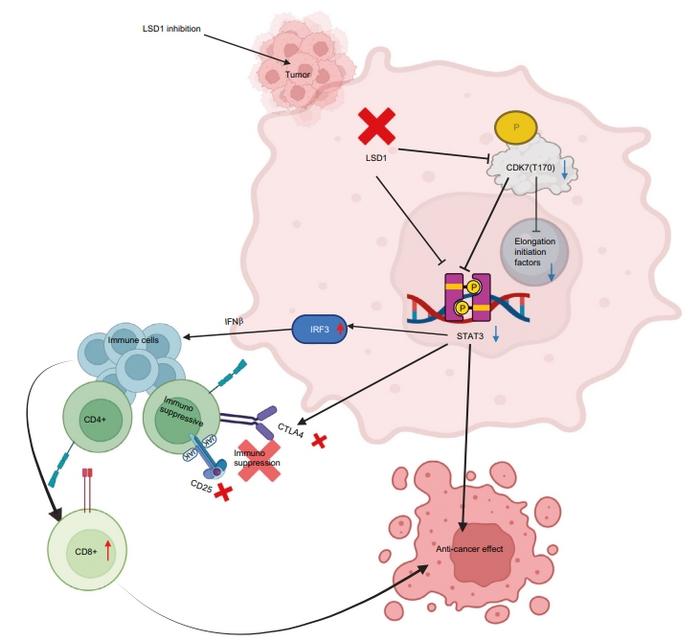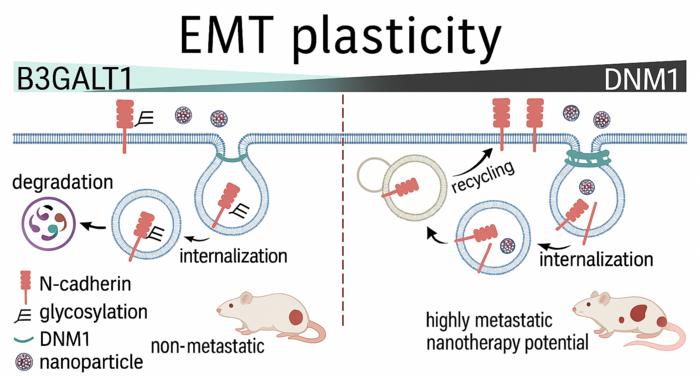Now Reading: Kanser Sağkalımı: Kültürel ve Davranışsal Müdahaleler
-
01
Kanser Sağkalımı: Kültürel ve Davranışsal Müdahaleler

Kanser Sağkalımı: Kültürel ve Davranışsal Müdahaleler
**Incorporating Cultural Sensitivity and Behavioral Science: A New Frontier in Cancer Support for Black and Hispanic Survivors**
Cancer survivorship is more than a medical milestone; it’s a complex journey shaped by cultural, social, and psychological factors. For Black and Hispanic cancer survivors, this journey often involves navigating a landscape marked by significant disparities in supportive care and health outcomes. A groundbreaking systematic review recently published in *BMC Cancer* sheds light on an increasingly recognized dimension of oncology: the integration of cultural appropriateness strategies and behavioral frameworks into interventions designed specifically for these underserved populations. This research presents a critical synthesis of behavioral oncology trials, revealing both progress and gaps in the approach toward equitable cancer care.
The review meticulously evaluated 37 trials focused on behavioral interventions for Black and Hispanic cancer survivors, concentrating predominantly on psychosocial outcomes such as quality of life and psychological distress. These parameters are not peripheral; they fundamentally influence survivors’ overall health trajectories and can determine long-term treatment adherence and wellness maintenance. In this context, culturally tailored interventions are not just a matter of representation but a vital clinical necessity. They ensure that supportive care resonates with patients’ lived experiences, values, and linguistic needs, thereby improving engagement and effectiveness.
A central finding from the review is that a striking 86.5% of the analyzed trials employed at least one cultural appropriateness strategy. This statistic is encouraging, yet it also underscores variability in how cultural factors are operationalized in interventions. The most prevalent strategies addressed sociocultural dimensions, which include recognizing cultural beliefs and practices influencing health behaviors. Closely following were constituent-involving approaches that actively engage community members in the design and implementation of interventions, and linguistic adaptations that ensure materials and communication are accessible and relatable.
However, incorporating cultural sensitivity alone is insufficient if it is not coupled with robust behavioral science frameworks that elucidate the mechanisms driving health behaviors and intervention outcomes. Behavioral frameworks provide evidence-based models to guide the development, delivery, and evaluation of interventions, embedding theoretical rigor into practical application. Yet, the review uncovered that only 56.8% of trials referenced a behavioral theory, signaling a substantial opportunity for methodological enhancement in this research arena.
Among the behavioral theories cited, Social Cognitive Theory emerged as the most frequently utilized framework. Rooted in the understanding that learning occurs in a social context and is mediated by cognitive processes, this theory is well-suited to addressing the cancer survivorship experience, which is deeply influenced by social support and self-efficacy. Stress and Coping Theory was the next most common, emphasizing how individuals appraise and manage stressors, an essential consideration given the emotional burden of cancer survivorship.
Importantly, the review highlighted that less than half of the trials synergistically combined cultural adaptation strategies with behavioral frameworks. This finding is a call to action for researchers and healthcare providers alike, advocating for integrative approaches that leverage the strengths of both cultural and theoretical insights. Such a combination has the potential to produce interventions that are not only culturally resonant but also systematically designed to influence critical psychosocial outcomes and health behaviors.
The predominance of trials focusing on breast cancer survivors reflects broader trends in oncology research priorities. While this focus is justified by the high prevalence and unique survivorship challenges associated with breast cancer, it raises questions about generalizability to other cancer types disproportionately impacting Black and Hispanic populations. Expanding the scope of culturally and theoretically informed interventions across various cancer diagnoses is crucial for comprehensive disparity mitigation.
Another dimension warranting attention is the relatively higher involvement of Black survivor populations compared to Hispanic ones in these trials. Understanding and addressing barriers to participation for Hispanic cancer survivors can enhance the inclusivity and cultural responsiveness of future research. This includes tackling language barriers, immigration-related concerns, and healthcare access issues that uniquely affect Hispanic communities.
The systematic review emphasizes the potential of behavioral oncology to bridge gaps in supportive care through culturally grounded science. Future research trajectories should prioritize the integration of culturally nuanced strategies with behaviorally informed frameworks, expanding beyond psychosocial outcomes to include physical health measures, survivorship care adherence, and cancer recurrence prevention.
From a clinical perspective, the findings underscore the need for multidisciplinary collaboration in intervention design. Behavioral scientists, cultural anthropologists, oncologists, and community stakeholders must coalesce to craft interventions that are both scientifically sound and culturally compelling. Such partnerships can foster trust and empowerment among Black and Hispanic survivors, catalyzing improved health trajectories.
Moreover, the role of technology and digital health tools presents a promising avenue for delivering culturally tailored, theory-driven interventions at scale. Mobile health applications, telehealth platforms, and social media channels can personalize support and education, overcome geographical and temporal barriers, and enhance continuous engagement in survivorship care.
Finally, the review’s implications extend to policy and funding priorities. Supporting research that explicitly values cultural appropriateness and behavioral theory not only advances scientific rigor but also aligns with health equity goals. Investment in such initiatives can catalyze systemic changes that improve survivorship experiences and outcomes for Black and Hispanic populations—a critical imperative given the entrenched disparities in cancer care.
In conclusion, this systematic review articulates a pivotal narrative in behavioral oncology: the imperative to weave cultural understanding with behavioral science in crafting supportive care interventions for Black and Hispanic cancer survivors. This dual lens promises not only enhanced intervention efficacy but also a vital step toward equity in cancer survivorship. As the field advances, embracing this integrative approach will be key to transforming cancer care from solely biomedical treatment to a holistic endeavor honoring diversity, resilience, and empowerment.
—
**Subject of Research:** Use of cultural appropriateness strategies and behavioral frameworks in behavioral interventions for Black and Hispanic cancer survivors
**Article Title:** Use of cultural appropriateness strategies and behavioral frameworks in behavioral interventions for black and hispanic cancer survivors: a systematic review
**Article References:**
Arana-Chicas, E., Zhang, Y., Chávez-Iñiguez, A. et al. Use of cultural appropriateness strategies and behavioral frameworks in behavioral interventions for black and hispanic cancer survivors: a systematic review. BMC Cancer 25, 835 (2025). https://doi.org/10.1186/s12885-025-14182-0
**Image Credits:** Scienmag.com
**DOI:** https://doi.org/10.1186/s12885-025-14182-0
**Keywords:** behavioral frameworks in oncology, behavioral interventions assessment, behavioral oncology research findings, Black cancer survivors support, cancer outcomes improvement, cultural appropriateness strategies, culturally tailored cancer support, health disparities in cancer treatment, Hispanic cancer survivors interventions, inequities in cancer care, supportive care for minority survivors, systematic review of behavioral trials
























